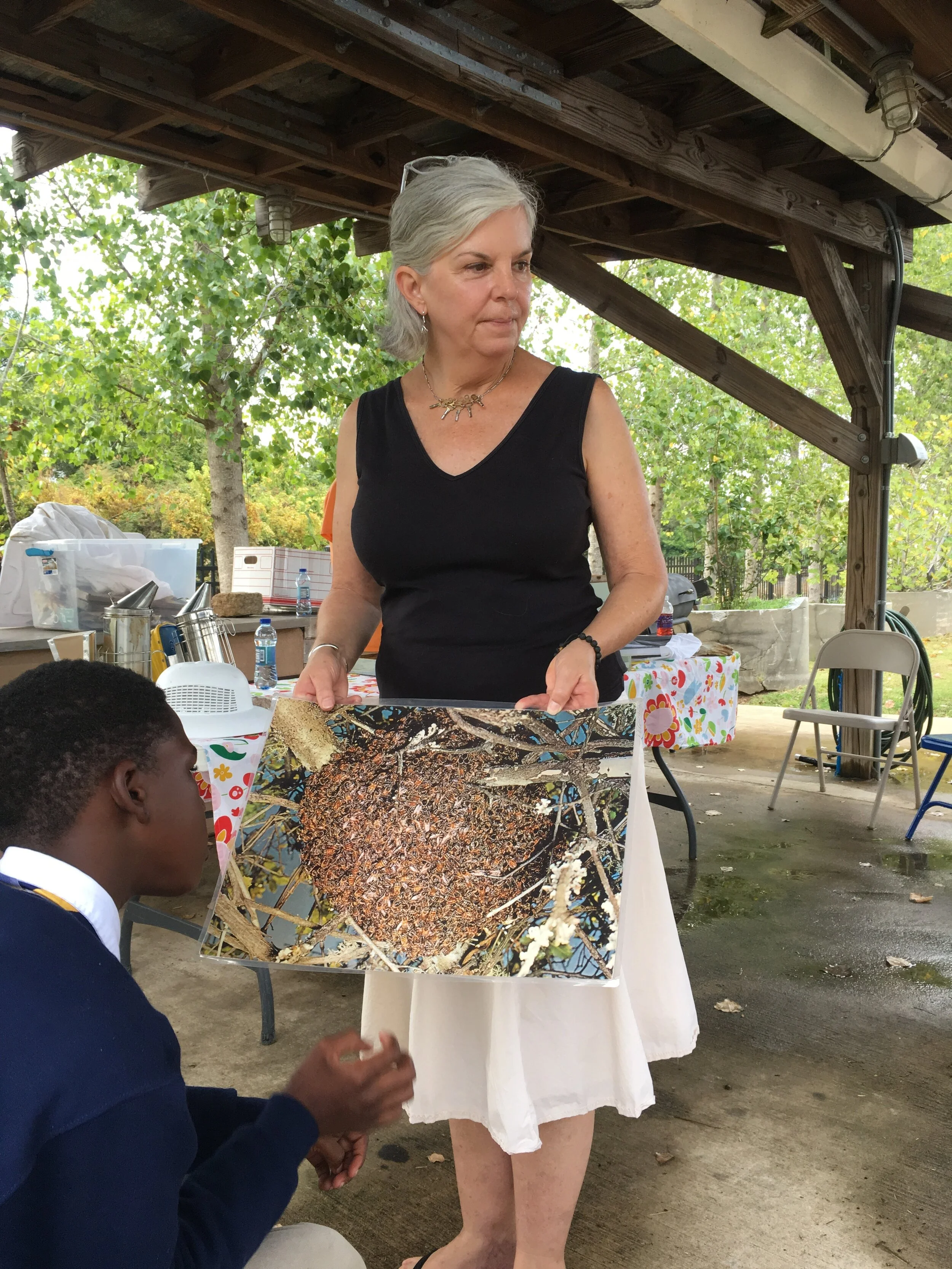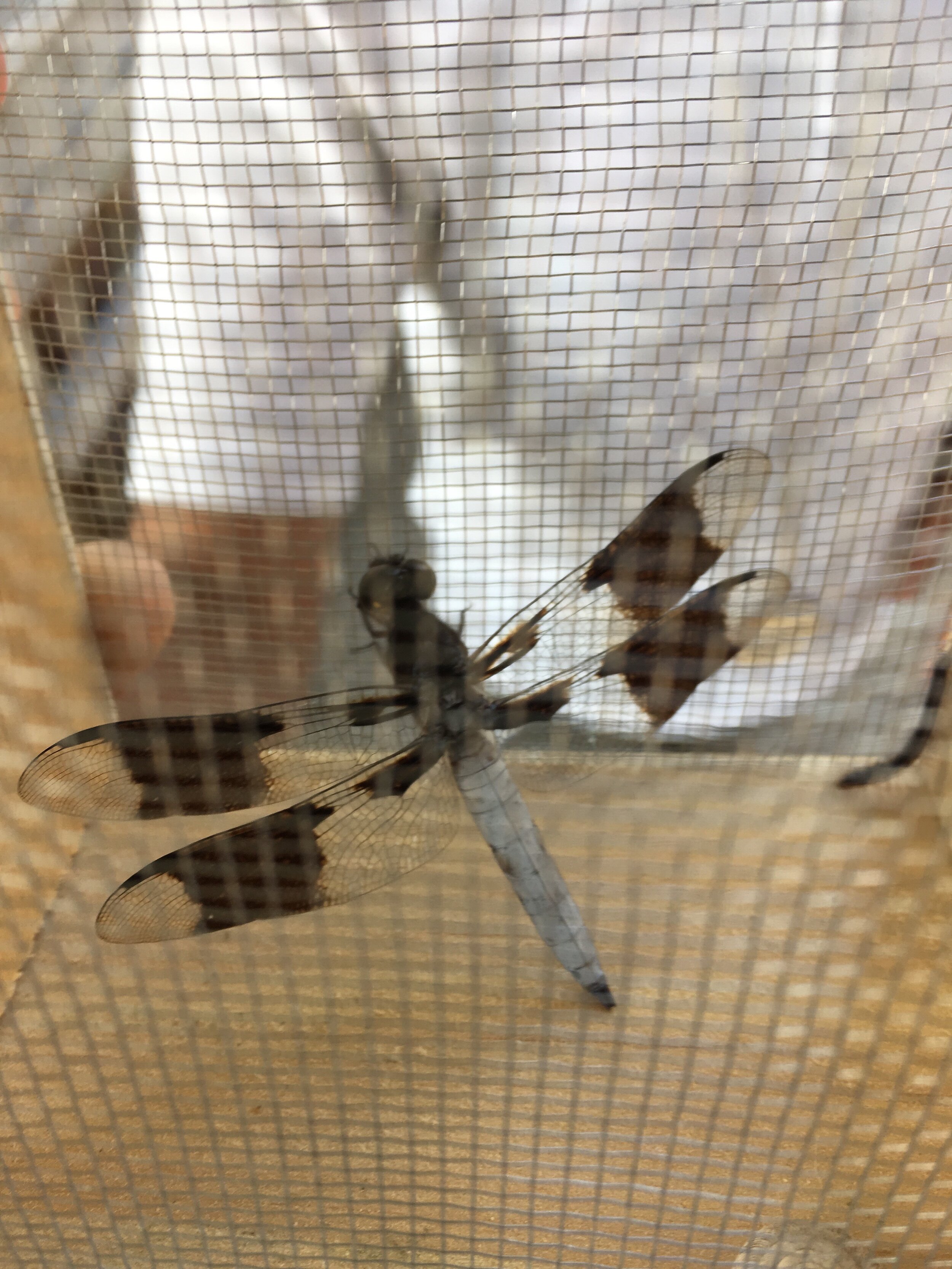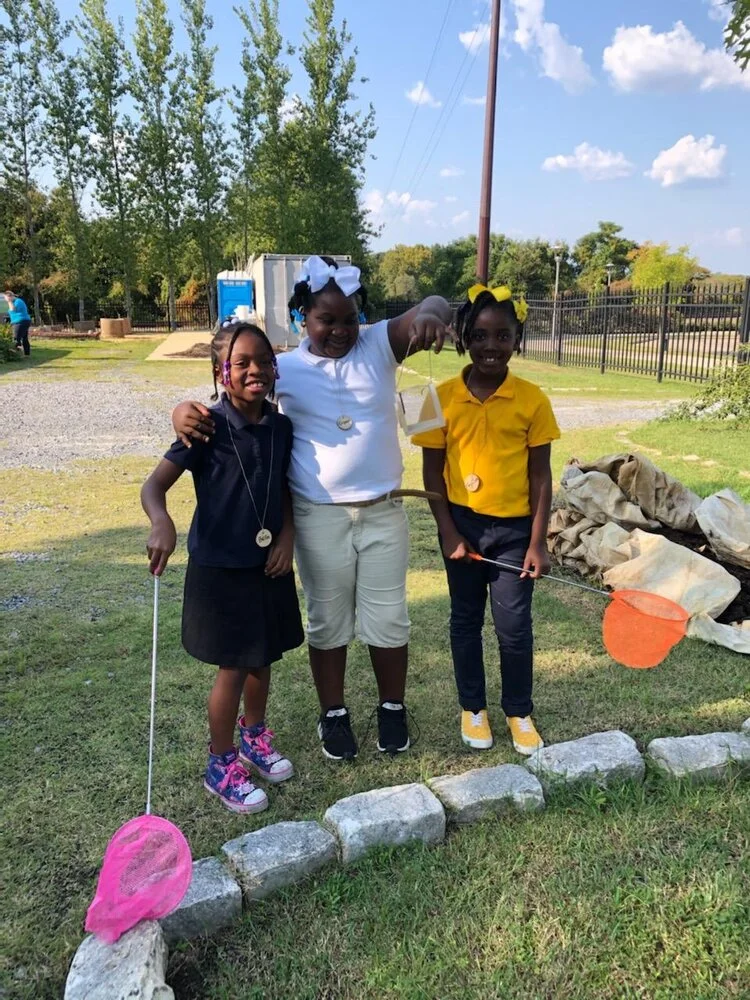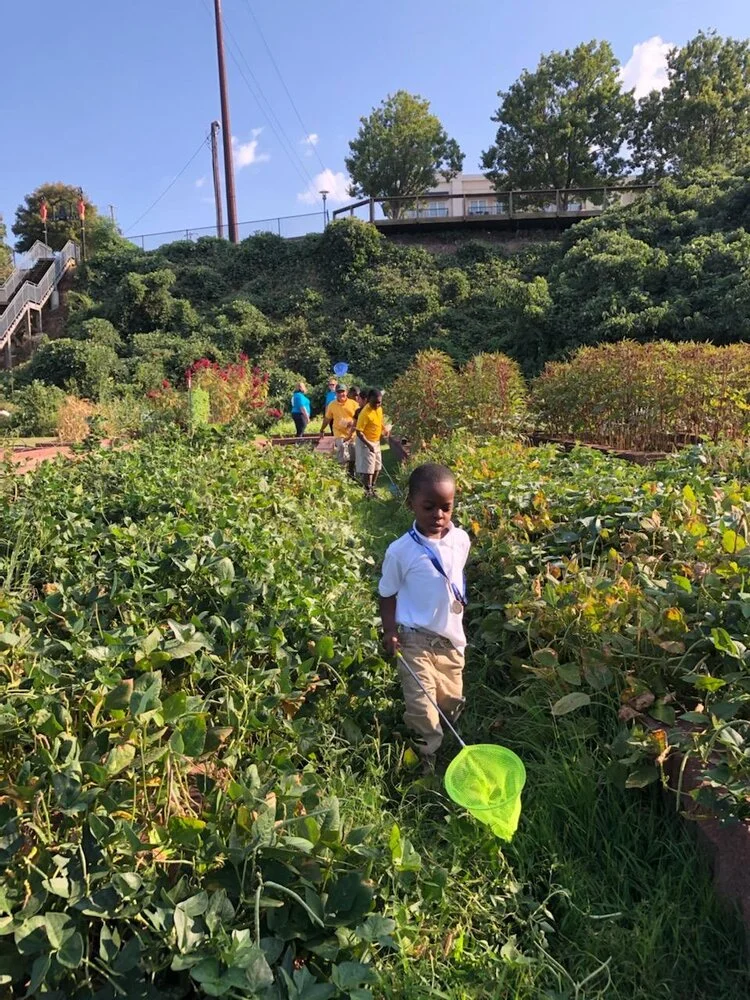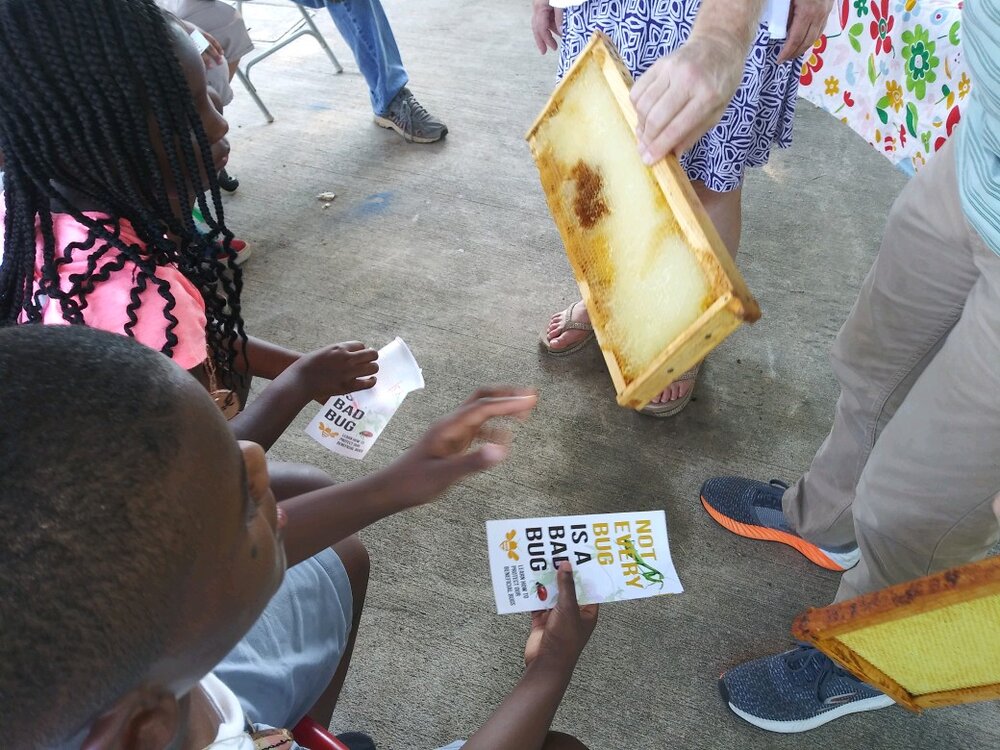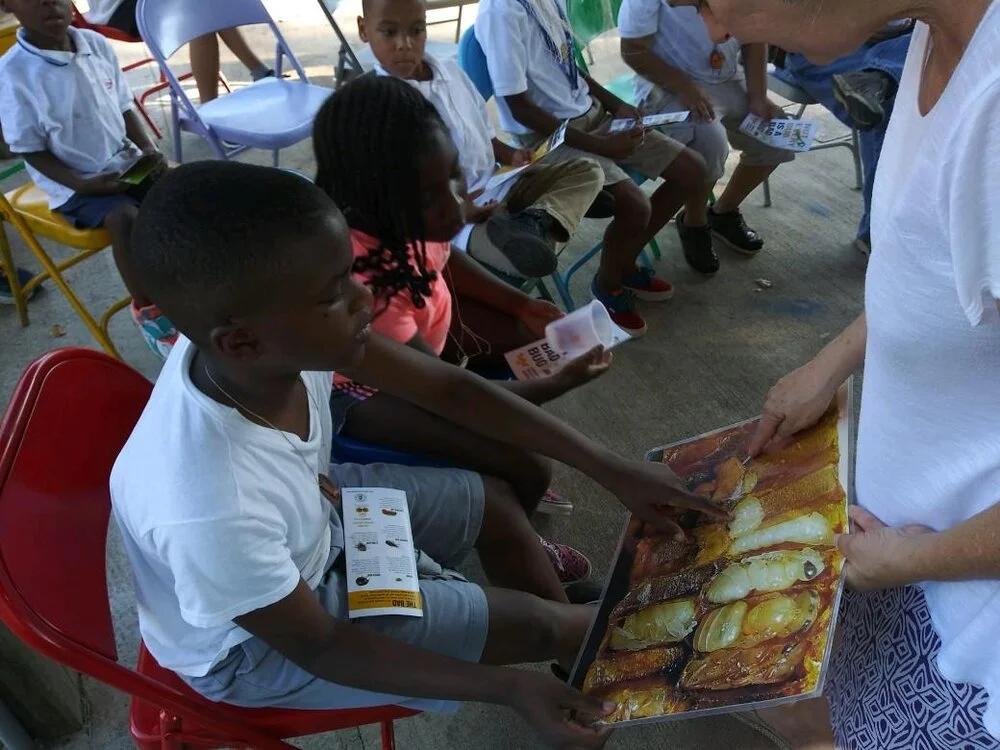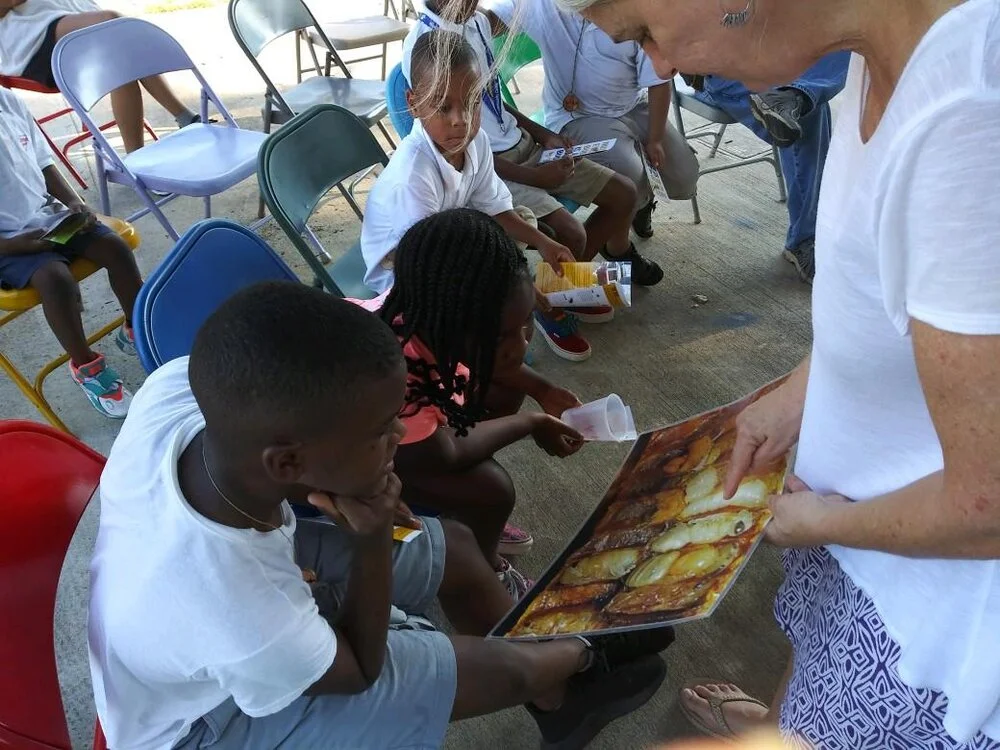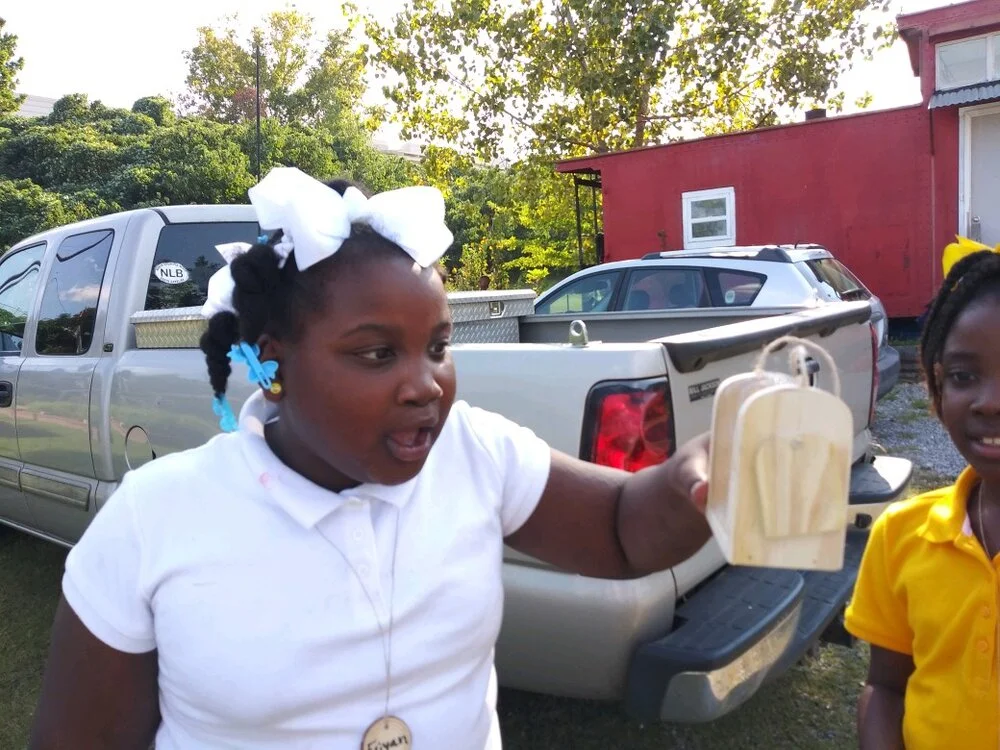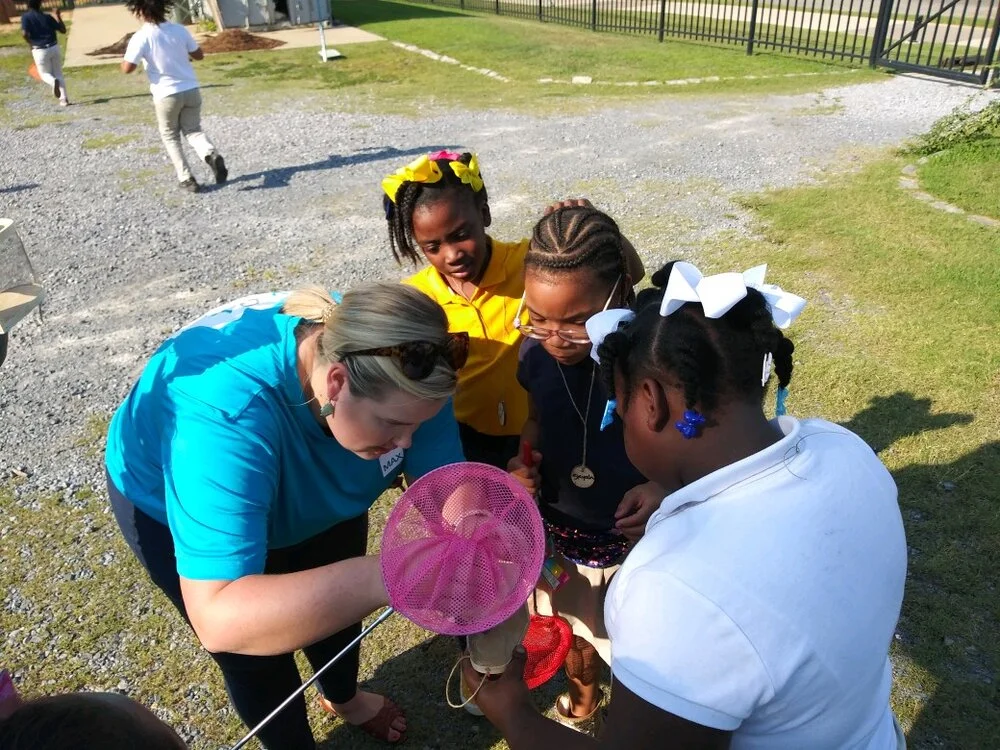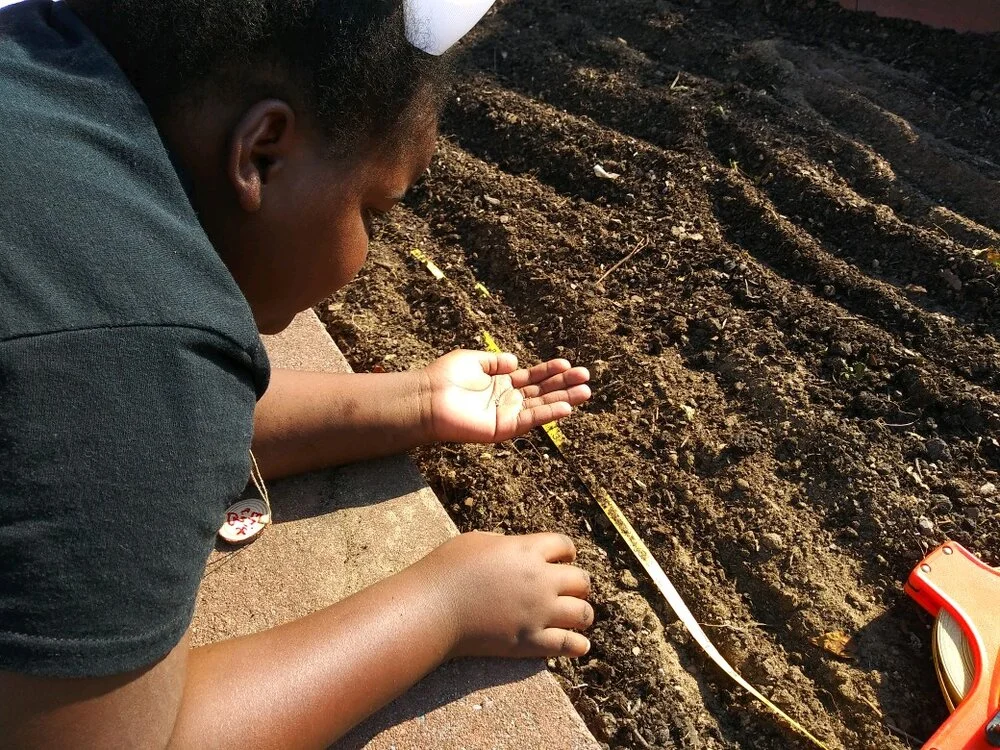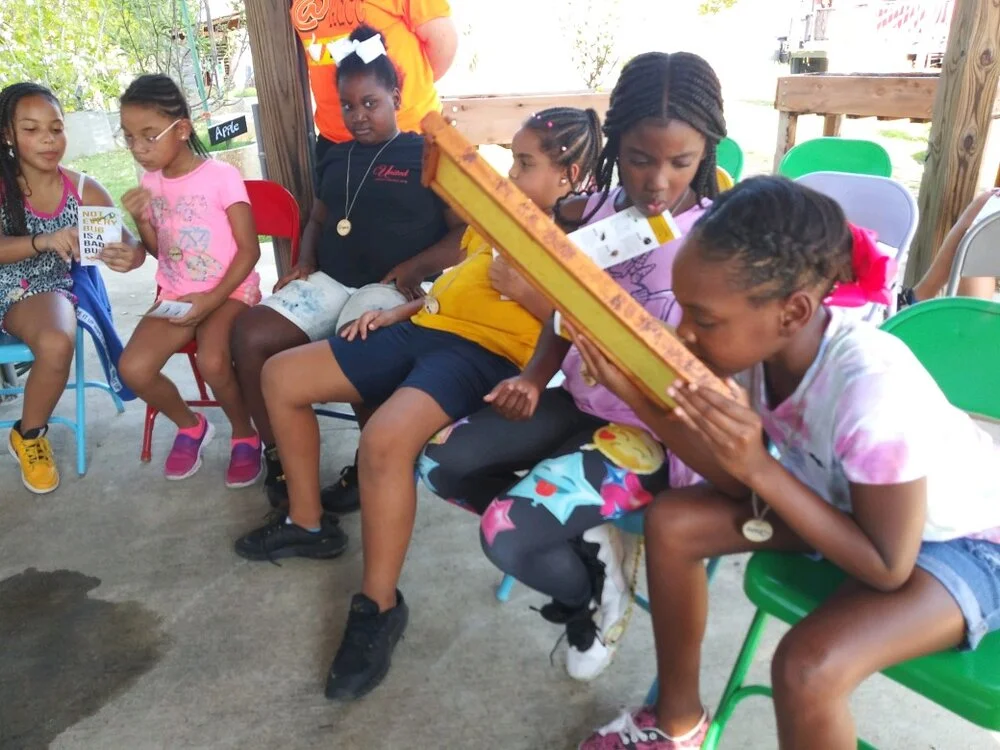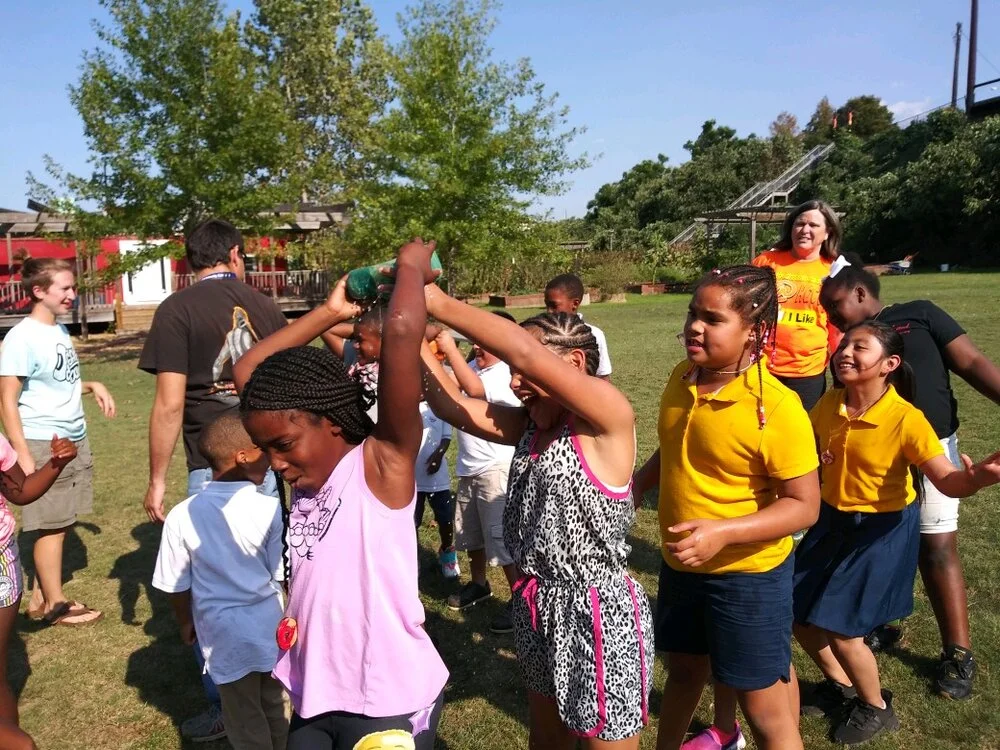After School Adventures
Our after school program is a partnership with Montgomery Community Centers, ED Nixon and Highland Gardens. Once a week, children attending the after school program visit the farm. Children have learned about bees, about insects and tasted lemongrass snow cones and micro-greens they planted themselves!
Planting seeds
Students planted amaranth sprouts, lettuce and sunflower sprouts
Last week was honey bee week. Visiting beekeepers, Myles and Debra Wright, created an unforgettable experience for the children by sharing their beekeeping stories, all about how a hive functions, showing them real honey comb and offering honey samples. Did you know that a bee must die in order to sting you? Therefore, simply stay calm and brush the bee away patiently, so you don’t get stung and the bee can live.
Explore
An emoji scavenger hunt kicked off our after school program. Students found points of interest using a grid of emojis.
This week we discovered dozens of insects around the farm, catching them and looking at them up close. Children learned about the differences between good bugs and bad bugs on the farm (mostly good). We encouraged students to look around flowers, under mulch and by the compost pile. Sometimes you’ve just got to run around looking for bugs! One child exclaimed, “Look, a honey bee!” and then another, “Careful! Don’t hurt the honey bee!”
In today’s world, most children do not spend enough time outside. In fact, there is a disorder known as Nature Deficit Disorder which is not a medical diagnosis but rather a catch-all description of negative side effects of alienating ourselves from nature. Although it is hot, children naturally are very engaged at the farm because they are eager to get their hands in the dirt, pet a chicken (although sometimes frightful at first) and taste a plant they planted and picked themselves. Gardening is a great way to engage your whole family outside and capture the knowledge that many of our elders have about growing food, and pass that on for the future.
We thank the Big Cedar Education Foundation and Montgomery Parks and Recreation for making this program possible.
